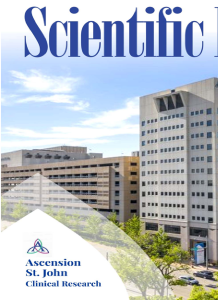What is rheumatoid arthritis (RA)?
Rheumatoid arthritis, or RA, is an autoimmune and inflammatory disease, which means that your immune system attacks healthy cells in your body by mistake, causing inflammation (painful swelling) in the affected parts of the body.
RA mainly attacks the joints, usually many joints at once. RA commonly affects joints in the hands, wrists, and knees. In a joint with RA, the lining of the joint becomes inflamed, causing damage to joint tissue. This tissue damage can cause long-lasting or chronic pain, unsteadiness (lack of balance), and deformity (misshapenness).
RA can also affect other tissues throughout the body and cause problems in organs such as the lungs, heart, and eyes.
What are the signs and symptoms of RA?
With RA, there are times when symptoms get worse, known as flares, and times when symptoms get better, known as remission.
Signs and symptoms of RA include:
- Pain or aching in more than one joint
- Stiffness in more than one joint
- Tenderness and swelling in more than one joint
- The same symptoms on both sides of the body (such as in both hands or both knees)
- Weight loss
- Fever
- Fatigue or tiredness
- Weakness
How can I manage RA and improve my quality of life?
RA affects many aspects of daily living including work, leisure and social activities. Fortunately, there are multiple low-cost strategies in the community that are proven to increase quality of life.
- Get physically active. Experts recommend that ideally adults be moderately physically active for 150 minutes per week, like walking, swimming, or biking 30 minutes a day for five days a week. You can break these 30 minutes into three separate ten-minute sessions during the day. Regular physical activity can also reduce the risk of developing other chronic diseases such as heart disease, diabetes, and depression. Learn more about physical activity for arthritis.
- Go to effective physical activity programs. If you are worried about making arthritis worse or unsure how to safely exercise, participation in physical activity programs can help reduce pain and disability related to RA and improve mood and the ability to move. Classes take place at local Ys, parks, and community centers. These classes can help people with RA feel better. Learn more about the proven physical activity programs that CDC recommends.
- Join a self-management education class. Participants with arthritis and (including RA) gain confidence in learning how to control their symptoms, how to live well with arthritis, and how arthritis affects their lives. Learn more about the proven self-management education programs that CDC recommends.
- Stop Smoking. Cigarette smoking makes the disease worse and can cause other medical problems. Smoking can also make it more difficult to stay physically active, which is an important part of managing RA. Get help to stop smoking by visiting I’m Ready to Quit on CDC’s Tips From Former Smokers website.



